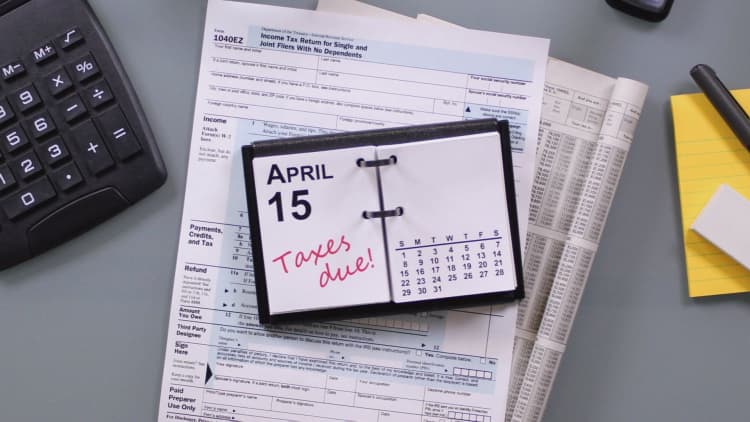
If you've thought about squirreling away cash from your side gig and hiding it from the Internal Revenue Service, you are not alone.
A recent study by Credit Karma Tax showed that 6 percent of about 2,000 people polled 'fessed up to fibbing on their taxes.
"We found that most Americans really want to pay the right amount of tax," said Rick Chen, a spokesman for Credit Karma Tax. "They're focused on paying their fair share."
There's a price to pay for trying to get around the IRS.
"Not reporting your income, or tweaking your income so that you fall below a certain threshold to take advantage of a tax credit, is against the law," said Chen.
Common fees levied by the IRS include failure to file, which carries a penalty of 5 percent of the unpaid tax, and failure to pay, which has a penalty of 0.5 percent of the tax not paid by the due date.
In more egregious cases, however, individuals who evade their taxes may be found guilty of a felony and face up to five years in prison and $250,000 in fines.
Here are the areas where filers have admitted to being less than honest with the IRS, according to Credit Karma Tax.
Failure to report income
Maybe you have a part-time job and you work on a cash-only basis.
Perhaps you're earning money from an illicit activity. The IRS still wants to know about your earnings.
Report your nontraditional sources of income on line 21 of your 1040. That includes money from, er, activities the Justice Department might frown upon.
If you are your own boss, you still need to report your income on Schedule C and pay self-employment taxes.
Phony deductions and credits
Seven percent of the admitted tax cheats said they fibbed about their number of dependents, their itemized deductions or their tax credits.
"One of the most common deductions people take advantage of is the charitable contribution," said Chen. "People drop their items off at Goodwill, get an empty slip and they have to report the fair market value of what they gave. It's an opportunity to write what you want."
Don't overvalue your used goods. TurboTax has a tool to obtain the value of a donated item, while Goodwill and the Salvation Army offer guides.
Skipping tips and gifts received
If you're getting tips at work, the IRS wants to know — and wants its cut.
Employees must report their tip income on Form 4070. Meanwhile, employers must collect income taxes, plus Social Security and Medicare taxes, from this income.
Paying others off the books
If you're paying your nanny or housekeeper in cash under the table, then congratulations: You're an employer. Do yourself a favor and make your arrangement official.
Individuals you pay off the books may be considered employees: This means they will need to report what they make as taxable income, and you'll need to cover a portion of Social Security and Medicare taxes as an employer.
If you paid at least $2,000 in annual wages to a household employee and withheld payroll taxes, be sure to file Schedule H when you do your taxes.
Hiding your gambling winnings
If you won big at the casino, be sure to let Uncle Sam know. All of your winnings must be reported as "other income" on line 21 of your 1040.
Don't try to hide your money: The entity paying you is required to send you a Form W-2G — and must tell the IRS about your windfall.
More from Personal Finance
10 tax changes you need to know for 2018
Here's why a big tax refund isn't always good news
This is what Americans do with their tax refunds


